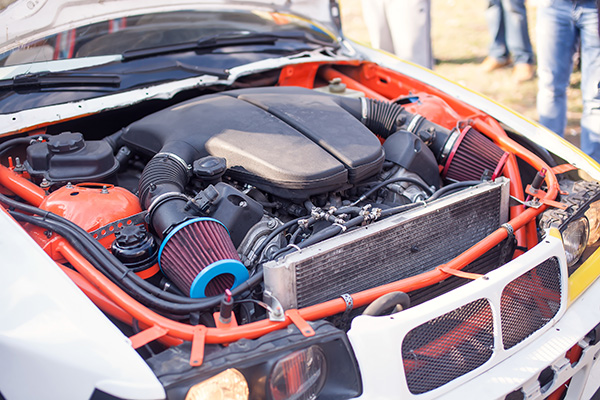
That high-pitched whining sound coming from your car when you step on the gas is not something to ignore. Even if your car still drives normally, a whining noise under acceleration usually means something mechanical isn’t quite right—and it could get worse if left unchecked.
Sometimes it’s a minor issue like a worn belt. Other times, it’s something more serious involving your transmission or power steering. The key is to catch it early before a strange noise turns into a major repair.
Possible Causes of Whining Noises When Accelerating
There isn’t a one-size-fits-all explanation. Whining sounds can come from a variety of systems in your vehicle, depending on where the noise is coming from and when it occurs. Here are some of the most common culprits:
1. Worn Serpentine or Drive Belts
Belts are responsible for powering multiple components under the hood, including the alternator, power steering pump, and air conditioning compressor. When a belt becomes worn, loose, or misaligned, it can produce a high-pitched whining or squealing sound when the engine revs up.
You might only hear it during acceleration, or it might persist while idling. Either way, belt issues are relatively inexpensive to fix—if addressed early.
2. Power Steering Problems
If the whining noise changes pitch as you turn the steering wheel—especially at low speeds or while accelerating—it could be related to your power steering system. Low power steering fluid, a failing pump, or air in the system can all produce that telltale whine.
Ignoring this can lead to stiff steering, fluid leaks, and eventual pump failure, so it’s worth having it checked sooner than later.
3. Transmission Issues
A whining sound that becomes more noticeable as you accelerate, especially if it seems to come from under the vehicle, could point to transmission trouble. Automatic transmissions, in particular, can emit whining noises if fluid is low or if internal components like bearings or planetary gears are wearing out.
In manual transmissions, the sound may come from the clutch or throw-out bearing. Transmission problems are among the most expensive to fix, so any unusual noises here should be inspected promptly.
4. Differential or Axle Concerns
Whining noises that increase with speed and change depending on whether you're turning or going straight might be coming from the differential or wheel bearings. If the fluid in your differential is old or leaking, gears can wear unevenly and create that whining sound.
Neglecting these components can eventually lead to vibration, poor handling, or complete axle failure—not something you want happening on the road.
5. Vacuum Leaks or Air Intake Problems
Sometimes, what sounds like a whine is actually air being sucked through a small crack or loose hose. Vacuum leaks in the intake system can mimic whining or whistling, especially as you accelerate and engine demand increases.
Along with the noise, you might notice rough idling, poor acceleration, or a check engine light. These leaks can throw off your air-fuel mixture and reduce efficiency if not fixed.
Should You Be Concerned
A little noise might not seem like a big deal—but the source of that whine could be something serious hiding in plain sight. What starts as a minor annoyance could turn into a costly breakdown if ignored for too long.
Instead of guessing or turning up the radio to drown it out, have the noise professionally diagnosed. A trained technician can pinpoint the source quickly, saving you time, money, and potentially preventing more damage.
Don’t Wait for It to Get Worse
Whining noises usually don’t go away on their own. In fact, most of the time, they get louder and more frequent until something finally gives out. Whether it’s a belt, pump, or something deeper, early repairs are almost always less expensive—and far less stressful.
The best thing you can do is pay attention to when the sound happens (cold starts, during acceleration, when turning, etc.) and get it checked before you’re left stranded.
Whining noises under acceleration aren’t normal. Trust Mancinelli’s Auto Repair Center in Denver, CO, to diagnose and repair the issue before it leads to bigger problems. Book your appointment today!